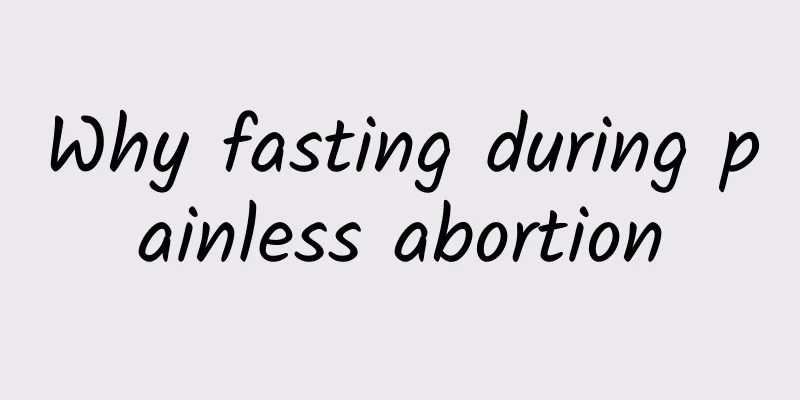Why fasting during painless abortion

|
Why do you need to fast for painless abortion? Painless abortion surgery requires anesthesia, and the patient is required to be on an empty stomach during anesthesia to avoid reflux of food eaten during the operation. Food reflux can easily block the patient's throat and even suffocate. For the success of the operation, the patient needs to refrain from eating for 6 hours before the operation. 1. Why do you need to be on an empty stomach for painless abortion? During painless abortion, the patient needs to be anesthetized with anesthetics to relieve pain during the operation. Generally speaking, surgical anesthesia requires an empty stomach, otherwise the patient is prone to nausea and vomiting during the anesthesia process, and in severe cases, suffocation may occur due to vomitus blocking the throat. Before the painless abortion operation, it is best to fast for 6 hours to prevent the patient from eating during the operation, which may cause food reflux. Fasting for 6 hours before surgery will make the anesthesia more effective and prevent vomiting or regurgitation after anesthesia. Try not to drink water four hours before surgery. If the surgery is done the next morning, it is best for the patient not to eat snacks at night, and dinner can be reduced appropriately, preferably before 10 o'clock, so as not to affect the effect of the surgery. The patient cannot eat food within three hours after the surgery, but can start eating liquid food three hours later. 2. Other precautions before painless abortion: 1. Prohibition of sexual life Women are prohibited from having sexual intercourse one week before painless abortion to avoid vaginal infection, which may lead to poor surgical results. 2. Keep your private parts clean One week before the operation, women should pay attention to protecting their private parts, clean the vulva with warm water every day, keep the vulva dry and clean, and reduce the growth of vaginal bacteria. 3. Prepare sanitary napkins You need to prepare enough sanitary napkins and loose underwear before the operation. You need to wear loose clothes on the day of the operation. Some patients will experience vaginal bleeding after the operation and need to use sanitary napkins for protection. |
<<: What medicine should I take to treat amenorrhea for three months?
>>: What are the effects of menstrual disorders?
Recommend
How to treat pelvic effusion more effectively
How to treat pelvic effusion more effectively? 1....
Maintain a perfect body shape like this! Sun Li shares new beauty tips
Empress Sun Li gave birth to two "princes&qu...
Can endometriosis cause infertility?
Can endometriosis cause infertility? Endometriosi...
What medicine should I take for a 2cm uterine fibroid? Can a 2cm uterine fibroid be treated with medicine?
What medicine should I take for a 2 cm uterine fi...
What are the reasons for girls not having menstruation? First of all, it may be pregnancy
The reasons why girls do not have menstruation ar...
Patients with uterine fibroids generally have abnormal vaginal discharge.
Patients with uterine fibroids can generally find...
What are the dangers of having sex 25 days after abortion?
You cannot have sex within one month after an art...
Does abortion affect fertility? It is better to know these gynecological common sense about abortion as early as possible.
Many couples abused contraceptive methods when th...
What is the cause of female cervical erosion? What medicine is good for female cervical erosion?
What is cervical erosion Cervical erosion is a co...
What are the causes of infertility caused by chronic pelvic inflammatory disease?
Chronic pelvic inflammatory disease is a very com...
Weight loss supplement! Six good habits to help you lose weight
As winter approaches, I find that many of my frie...
What are the methods for checking menopause?
The so-called primary menopause refers to the sit...
What are the diagnostic methods for vaginitis in young girls?
What are the diagnostic methods for vaginitis in ...
How to provide nutritional guidance to prevent functional uterine bleeding in adolescence?
Adolescence is a transitional period from childho...
When does uterine fibroids require surgery? Surgical treatment of uterine fibroids
How many surgeries are needed for uterine fibroid...









